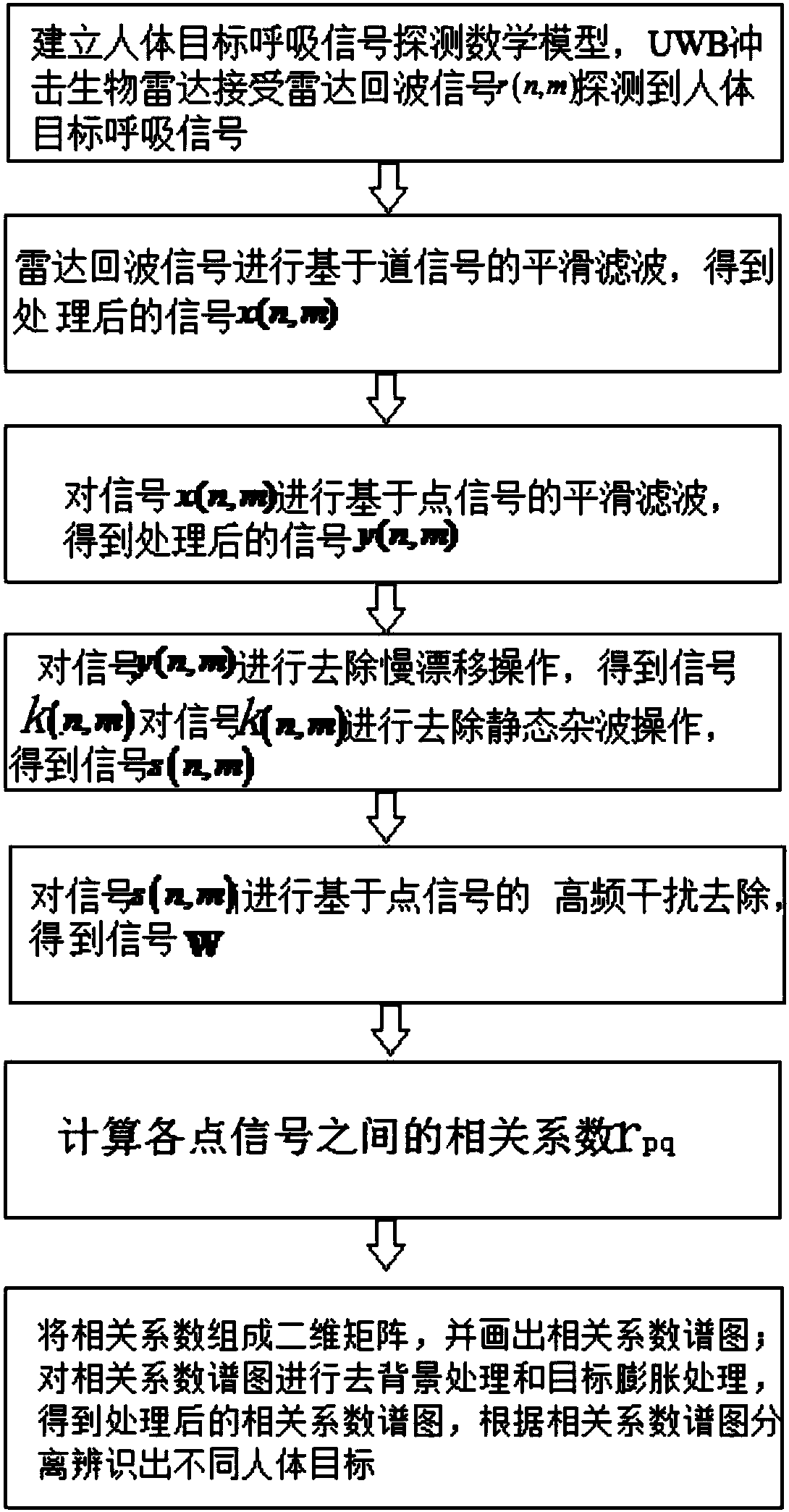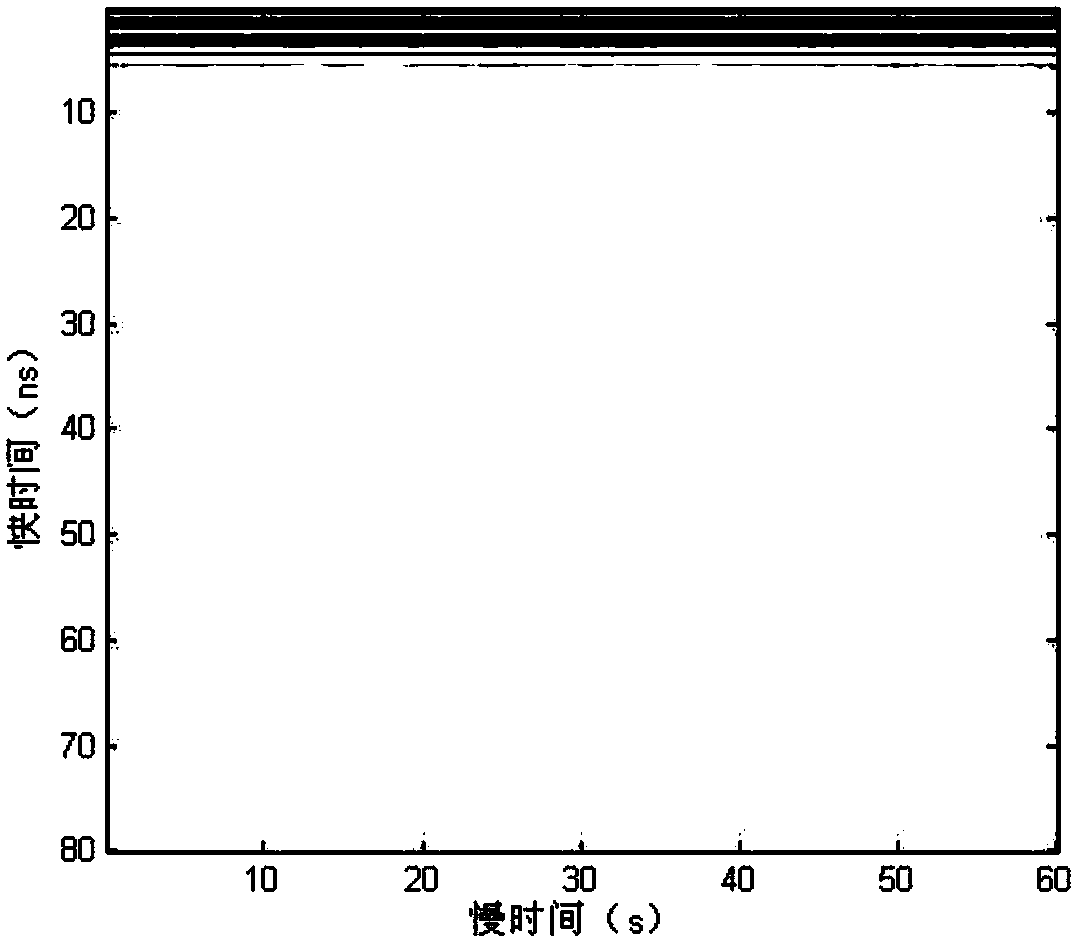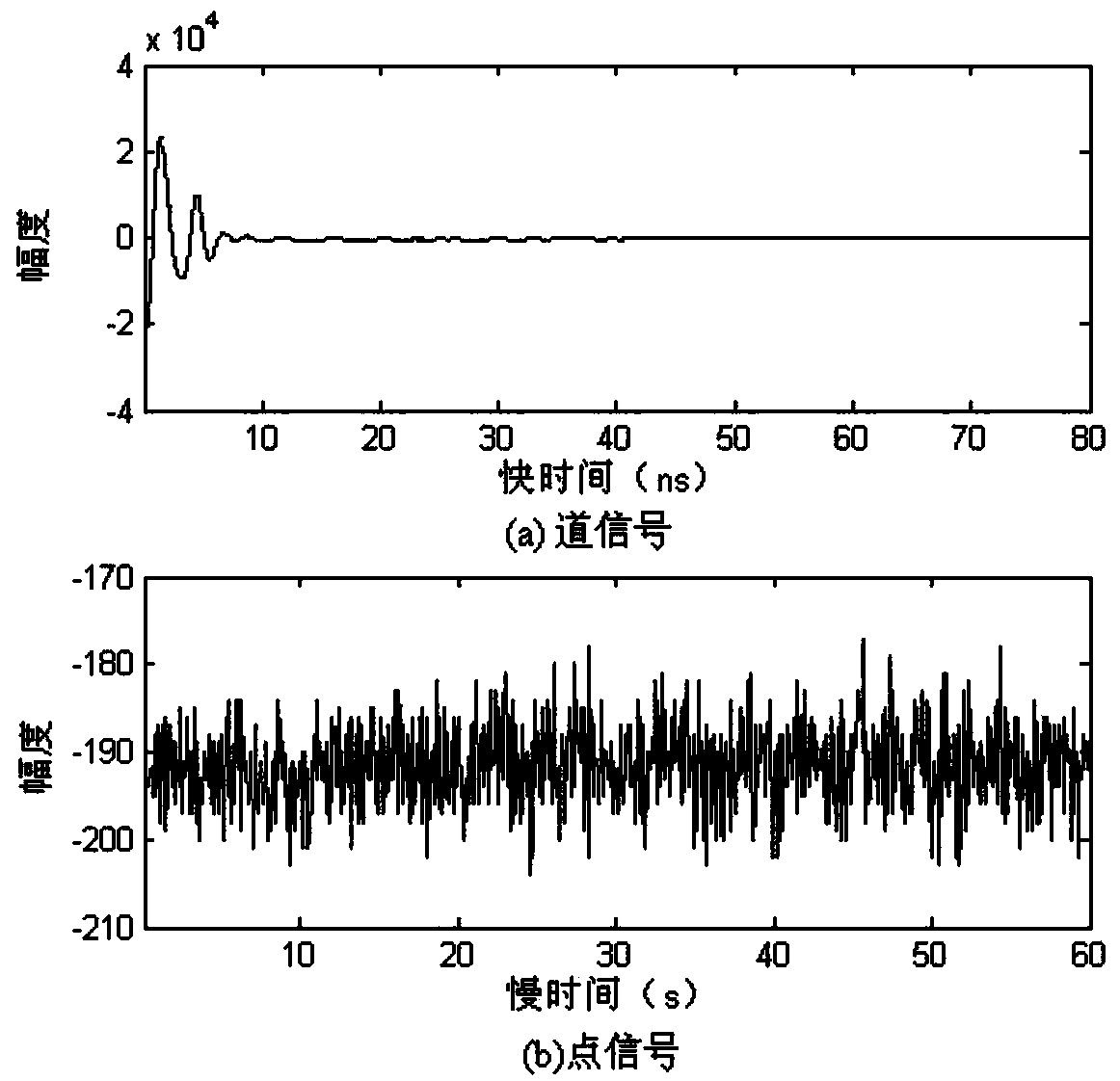A UWB impact bio-radar multi-human target distance separation identification method
A technology of human target and bio-radar, which is applied in the direction of radio wave reflection/re-radiation, utilization of re-radiation, measurement devices, etc., can solve problems such as background submersion, failure to extract and identify, target missed judgment, etc., to improve separation and identification performance, The effect of improving detection and positioning performance and reducing missed judgments
- Summary
- Abstract
- Description
- Claims
- Application Information
AI Technical Summary
Problems solved by technology
Method used
Image
Examples
Embodiment 1
[0143] The detection time window is 40ns, that is, the detection distance is 0-6 meters. The detection scene is to penetrate a 30cm thick red brick wall to detect three stationary human targets. The three targets are 3.0 meters, 3.8 meters, and 5.0 meters away from the radar. Figure 7They are the preprocessed signal, the range energy spectrum signal, the correlation coefficient spectrum, and the correlation coefficient spectrum after background removal and expansion processing. In this detection experiment, due to the high energy of the first and second targets at a distance of 3.0 meters and 3.8 meters, the third target could not be identified through the energy spectrum signal, resulting in a missed judgment. Since the correlation coefficient spectrogram is composed of the correlation coefficients of point signals at different distances, and its pixels have normalized characteristics (correlation coefficients are -1 to +1), each target only has a high correlation coefficient...
Embodiment 2
[0145] The detection scene is the same as that in Embodiment 1, and the three targets are 3.0 meters, 3.8 meters, and 5.0 meters away from the radar respectively. Figure 8 They are the preprocessed signal, the range energy spectrum signal, the correlation coefficient spectrum, and the correlation coefficient spectrum after background removal and expansion processing. In this detection experiment, since the first and second targets at a distance of 3.0 meters and 3.8 meters are relatively close, and the energy of the first and third targets is relatively large, the second target cannot be identified through the energy spectrum signal, resulting in a leak. sentenced. However, the correlation coefficient spectrum after background removal and expansion processing can clearly separate and identify three targets. They are respectively located at 3.0 meters, 3.8 meters and 5.0 meters, which are consistent with the actual positions of the targets.
[0146] In addition, we also colle...
PUM
 Login to View More
Login to View More Abstract
Description
Claims
Application Information
 Login to View More
Login to View More - R&D
- Intellectual Property
- Life Sciences
- Materials
- Tech Scout
- Unparalleled Data Quality
- Higher Quality Content
- 60% Fewer Hallucinations
Browse by: Latest US Patents, China's latest patents, Technical Efficacy Thesaurus, Application Domain, Technology Topic, Popular Technical Reports.
© 2025 PatSnap. All rights reserved.Legal|Privacy policy|Modern Slavery Act Transparency Statement|Sitemap|About US| Contact US: help@patsnap.com



